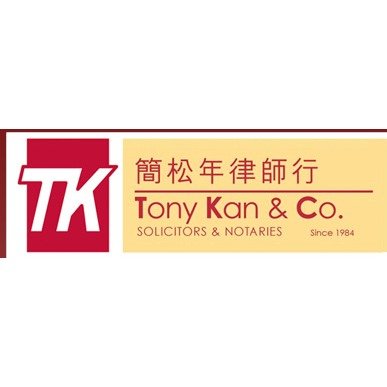Best Foreclosure Lawyers in Shatin
Share your needs with us, get contacted by law firms.
Free. Takes 2 min.
Free Guide to Hiring a Real Estate Lawyer
List of the best lawyers in Shatin, Hong Kong
About Foreclosure Law in Shatin, Hong Kong
Foreclosure is a legal process where a lender attempts to recover the balance of a loan from a borrower, who has stopped making payments, by forcing the sale of the asset used as the collateral for the loan. In Shatin, Hong Kong, this usually refers to residential and commercial properties. The primary legislation governing foreclosure in Hong Kong is the Conveyancing and Ordinance (Cap. 219), which provides the complete legal framework and procedure for foreclosures.
Why You May Need a Lawyer
In any procedures involving foreclosure, it's best to involve a lawyer who is experienced in real estate laws and specifically foreclosures. Situations that would typically require legal assistance include if you are unable to keep up with your mortgage payments, your lender has initiated default proceedings, or if you seek to renegotiate your loan terms with the lender. Additionally, in instances where you feel your lender has not followed due procedure, a lawyer would provide significant assistance.
Local Laws Overview
The Conveyancing and Property Ordinance (Cap. 219) provides the fundamental legal framework for foreclosures. Locally in Shatin, the usual process involves the lender serving a formal notice to the borrower to repay the overdue, and if there is no satisfactory response, the lender would then apply to the court for an order for sale of the concerned property. The court gives both parties ample opportunities to be heard, and it is here, having a lawyer who can effectively advocate on your behalf or advise on the implications, could be critical. Other local laws that may affect foreclosure include the Bankruptcy Ordinance as well as the Mortgage Rights Ordinance.
Frequently Asked Questions
What happens if I can't pay my mortgage?
If you are unable to keep up with your mortgage payments, the lender can initiate a foreclosure process to recover the outstanding amount through the sale of your property.
Can the foreclosure process be stopped?
Yes, the foreclosure process can be stopped or delayed. You can engage a lawyer to negotiate with your lender for a modified payment plan, or to challenge the foreclosure if there exists any legal discrepancies in how your lender has pursued the foreclosure.
How long is the foreclosure process?
The duration of the foreclosure process varies based on multiple factors such as responsiveness of the borrower, the court's schedule, and more. If not contested, it could complete in a months, otherwise, it may take much longer.
What rights do I have as a homeowner?
As a homeowner, you have the right to be notified at each stage of the foreclosure process, and to contest the procedure if your lender did not follow the correct procedures. You also have the right to try to settle the default or to sell your home before final foreclosure.
What's the role of the court in a foreclosure process?
In a foreclosure process, the court ensures due process for both parties. The court is involved in the granting of orders for possession and orders for sale, to ensure fairness in the resolution.
Additional Resources
Other than consulting a lawyer, resources that are useful include the Legal Aid Department for those who cannot afford a lawyer and the Hong Kong Mortgage Corporation Limited, which provides information on mortgage loans. Also, the Hong Kong Monetary Authority provides guidelines and regulations on all things mortgage and banking related in Hong Kong.
Next Steps
If you face a situation related to foreclosure, it's important to take immediate action to protect your rights and interests. Seek a legal professional who specializes in foreclosure and real estate laws for advice and guidance. Make sure you understand all your options, explore available resources, and act wisely.
Lawzana helps you find the best lawyers and law firms in Shatin through a curated and pre-screened list of qualified legal professionals. Our platform offers rankings and detailed profiles of attorneys and law firms, allowing you to compare based on practice areas, including Foreclosure, experience, and client feedback.
Each profile includes a description of the firm's areas of practice, client reviews, team members and partners, year of establishment, spoken languages, office locations, contact information, social media presence, and any published articles or resources. Most firms on our platform speak English and are experienced in both local and international legal matters.
Get a quote from top-rated law firms in Shatin, Hong Kong — quickly, securely, and without unnecessary hassle.
Disclaimer:
The information provided on this page is for general informational purposes only and does not constitute legal advice. While we strive to ensure the accuracy and relevance of the content, legal information may change over time, and interpretations of the law can vary. You should always consult with a qualified legal professional for advice specific to your situation.
We disclaim all liability for actions taken or not taken based on the content of this page. If you believe any information is incorrect or outdated, please contact us, and we will review and update it where appropriate.








